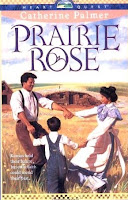This isn't the kind of book I would normally read. The cover isn't particularly appealing, and the blurb on the back does not sound very interesting to me. I had never heard of A Manette Ansay. But I was given the book 'Midnight champagne', and of course it's a good idea to try new authors from time to time.
The plot is about a wedding. April and Caleb have only known each other for three months, and she isn't pregnant. Thus nobody can quite understand why they want to get married so quickly. They would like to have had a private ceremony, but April's parents insist that she should be married 'properly'. So she books into Great Lakes Chapel on the shores of Lake Michigan for a wedding on Valentine's Day. It's not a religious chapel, but some of April's Catholic relatives are so determined to make the wedding valid that they arrive early to decorate it with candles and a statue.
Nearby is the Hideaway Lodge, where some of the relatives have booked to stay for the night. This is a lodge with a history of murder, suicide and even ghosts. Other visitors are there, and for one couple a domestic quarrel ends in a rather dramatic way.
As the guests mingle, the book zooms in on various discussions, pinpointing different groups and showing their reactions to the wedding. There are disapproving relatives, puzzled friends, even an ex-fiancé of April's who is still rather angry at her having broken off their engagement. As the story unfolds we discover more of the reason, and see better why she has chosen to marry Caleb.
I found it a strange book. To my surprise, Amazon has it listed under 'horror/mystery', but there are no mysteries in the book, and it's so light-hearted that I didn't find it horrific either. The one tragedy is played down, the past is only skated upon lightly. Yes, there are ghosts, but they're all quite amicable. Serious discussions are contrasted with light humour and irony, and even a little slapstick comedy. My favourite sections involve a group of young teenagers who are too old to play with the younger children, but bored with sitting around gossipping. They discover a games room, and a beer keg...
There's a bit of mild suspense here and there. The snow keeps falling, the lights go out due to a power cut, and two children set out to visit a room where we know that a potentially dangerous man has gone. However they're dressed in borrowed fur coats that are far too big for them, and somehow this light-hearted vision meant that I didn't have any worries about them. It wasn't the kind of book that was upsetting or disturbing in any way, and I say that as someone who's quite squeamish and wouldn't normally touch anything in the 'horror' category.
Really the whole book seems like a series of brief images. I found myself thinking that this would have worked a great deal better on screen. If a film director had wanted a 'horror' angle, then I'm sure it could have been done with appropriate music, eerie lighting and longer focus on the times when people were approaching potential danger, rather than the brief sentence or two that suffice in the book.
All in all, I found the book left me unmoved. It wasn't bad - I didn't give up on it. I didn't dislike it in any way, but nor did I find it gripping. Inevitably for a wedding there were a large number of people involved, and while it didn't really matter what their various relationships were to the bride or groom, there wasn't time to become involved with any of them.
April should perhaps have been the main character, but although we learn quite a lot about her, there's very little directly from her point of view. None of the characters are memorable, none of the book was particularly thought-provoking, and I got to the end without really knowing what the plot was.
The blurb on the back includes a review by the New York Times, which says, 'Ansay weaves in and out of the sundry dramas with grace, warmth and a good deal of humour'. I think that sums it up reasonably well. It's a pleasant enough way to pass a few hours; it's only a little over 200 pages. It's not a difficult style. At times I was reminded of Anne Tyler, but there isn't any of the depth or astute observation that I expect from Tyler.
Not one I'm likely to read again.








